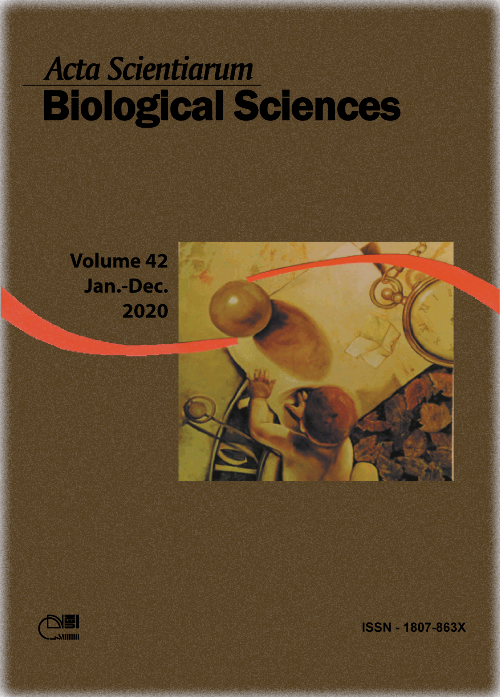Solid-state fermentation with orange waste: optimization of Laccase production from Pleurotus pulmonarius CCB-20 and decolorization of synthetic dyes
Resumo
Laccases are oxidoreductase enzymes that have the ability to oxidize phenolic substrates. Its biotechnological potential has been greatly explored in many areas as biotechnology industry, bioremediation of dyes, food industry and environmental microbiology. The aim of this study was maximize the laccase production by Pleurotus pulmonarius (Fr.) Quélet in solid-state fermentation (SSF) using orange waste as substrate. After optimization the capability of the crude laccase to decolorize dyes was analyzed. The fermentation medium in the solid-state was optimized by applying a factorial design. After statistics optimization, laccase activity increased two times. The laccase activity appears to be correlated with the ability of crude extract to decolorize some industrial dyes. The optimized laccase was characterized with respect to optimum pH, influence of temperature and salts. Our results demonstrate that P. pulmonarius was an efficient producer of an important industrial enzyme, laccase, in a cheap solid-state system using orange waste as substrate.
Downloads
DECLARAÇÃO DE ORIGINALIDADE E DIREITOS AUTORAIS
Declaro que o presente artigo é original, não tendo sido submetido à publicação em qualquer outro periódico nacional ou internacional, quer seja em parte ou em sua totalidade.
Os direitos autorais pertencem exclusivamente aos autores. Os direitos de licenciamento utilizados pelo periódico é a licença Creative Commons Attribution 4.0 (CC BY 4.0): são permitidos o compartilhamento (cópia e distribuição do material em qualqer meio ou formato) e adaptação (remix, transformação e criação de material a partir do conteúdo assim licenciado para quaisquer fins, inclusive comerciais.
Recomenda-se a leitura desse link para maiores informações sobre o tema: fornecimento de créditos e referências de forma correta, entre outros detalhes cruciais para uso adequado do material licenciado.












1.png)




3.png)













